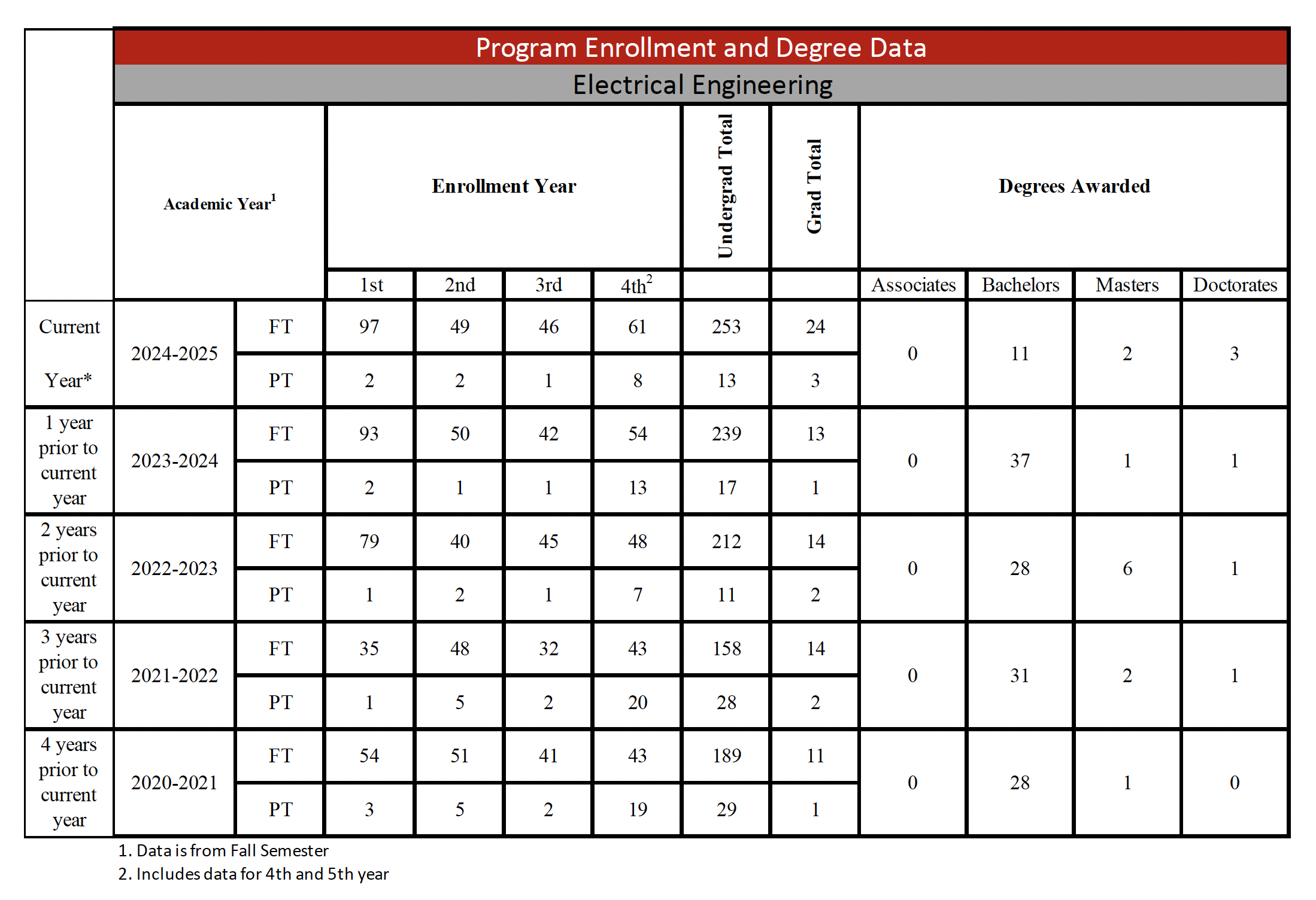Accreditation
The Electrical Engineering (BS in Electrical Engineering) program is accredited by the Engineering Accreditation Commission of ABET, under the commission's General Criteria and Program Criteria for Electrical, Computer, Communications, Telecommunication(s) and Similarly Named Engineering
Programs.
Educational Objectives
- Core Technical Competencies and Life-Long Learning: Our graduates demonstrate effective use of their core technical competencies in Electrical and Computer Engineering by progressive advances in their professional careers, including in many cases mastery of emerging technologies, the pursuit of different specialization areas, attainment of advanced degrees, or professional licensure or certifications.
- Effective Teamwork: Our graduates work effectively as team members and leaders in diverse engineering environments.
- Impact of Technology: Our graduates demonstrate, in their professional careers, a clear understanding of the impact of technology in a global and societal context.
Student Outcomes
1. An ability to identify, formulate, and solve complex engineering problems by applying principles of engineering, science, and mathematics.
2. An ability to apply engineering design to produce solutions that meet specified needs with consideration of public health, safety, and welfare, as well as global, cultural, social, environmental, and economic factors.
3. An ability to communicate effectively with a range of audiences.
4. An ability to recognize ethical and professional responsibilities in engineering situations and make informed judgments, which must consider the impact of engineering solutions in global, economic, environmental, and societal contexts.
5. An ability to function effectively on a team whose members together provide leadership, create a collaborative environment, establish goals, plan tasks, and meet objectives.
6. An ability to develop and conduct appropriate experimentation, analyze and interpret data, and use engineering judgment to draw conclusions.
7. An ability to acquire and apply new knowledge as needed, using appropriate learning strategies.

